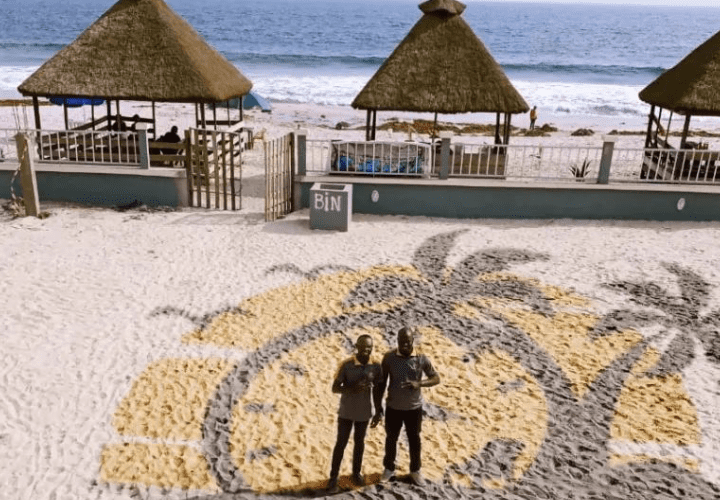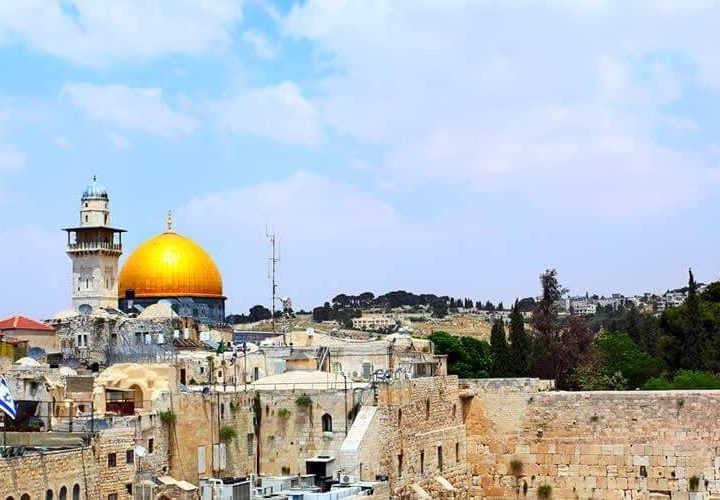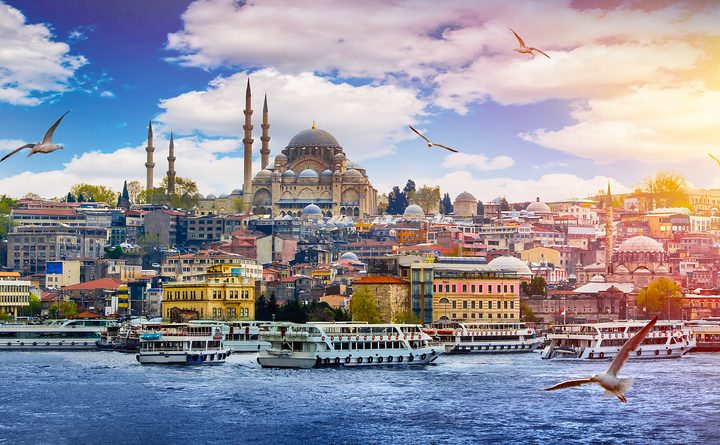Tour overview
Fly in from Lagos into Beirut and start the tour of Lebanon, taking you through Beirut and 5 other destinations in Lebanon.
Uncover Lebanon’s fascinating history on this journey . Stand in front of the vast Roman ruins at Baalbek, discover Crusader castles and Phoenician ruins and see the reminders of the civil war on a walking tour in Beirut. See the 1000-year-old Lebanon Cedars set high above the Qadisha Valley also known as Cedars of God.
Included
- Visa
- Return Flights (Lagos - Beirut)
- Return Airport transfers
- 5 nights standard hotel
- 1 night standard monastery
- Le Commodore Hotel (or similar) - Beirut
- Deir al Oumara Hotel (or similar) - Deir Al-Qamar
- Palmyra Hotel (or similar) - Baalbek
- Guides
- This tour offers Vegetarian and Halal food options on request. Simply let us know the food option you prefer
Day 1: Arrive in Beruit
Arrive in the capital, Beirut. we will pick you up from airport and take you to a 3* hotel. If time allows, you may choose to take a walk along the waterfront or go in search of Beirut's best.
Day 2: Stand on Beirut's Green Line, discover Roman ruins and stroll along the Corniche
After breakfast we'll make our way to the National Museum, starting here we can begin to understand the civilisations that have shaped Lebanon. The museum is located at the end of the Green Line, this line divided the city during the civil war and for those 15 years the museum was closed, its facade suffering serious damage throughout the conflict. Thousands of artefacts are on display including sarcophagi from the Phoenician period to ornate mosaics from the Roman city of Baalbek. Moving further down the Green Line we'll visit Martyrs Square and the Mohammad Al Amin Mosque. The mosque resembles the Blue Mosque in Istanbul and it's minarets stand at 65 metres tall making it a very useful navigation tool! Much of the city has been rebuilt since the war ended but there are plenty of reminders of the 15 year civil war that Lebanon lived through, we'll pass the bullet-ridden Holiday Inn which still stands, with talks of demolishing the building or preserving it still taking place. Walking along the Corniche is a must when in Beirut, and we'll join locals drinking strong, sweet coffees as we go. With the sea to one side you can take stop, take in the city landscape and start to understand how the city was divided during the war and how the regeneration projects have created modern-day Beirut. Our hotel is based in the Hamra neighbourhood and was used as a base for worldwide journalists covering the war. Before dinner tonight we'll take a drink in the bar and understand a little more about what life was was like in Beirut between 1975 and 1990.
Day 3: Visit Sidon's Phoenician sea castle and narrow souks before driving in to the Chouf Mountains
This morning we'll leave the city and drive south to Sidon. Once an important trade port on the Phoenician sea route, Sidon is now a busy seaside city, where remnants of its ancient past can be found at every turn. We'll start at Qalaa al-Bahr, a defence sea castle built in 1228 by the crusaders. The castle is a great display of how each civilisation built on the previous one, with Roman ruins used by the Crusaders to add support to the walls, then the Ottomans arriving and building a mosque on the west wall of the castle. We'll explore the souk and the renovated khans, including Khan al-Franj which dates back to the 17th century and once operated as an 'inn for foreigners', offering lodgings for many the merchants and traders that travelled through on the way to Mediterranean. There are many good spots to eat in Sidon and we'll have lunch here by the coast before moving inland to the Chouf area of Lebanon. Our base for tonight is the sleepy village of Deir Al-Qamar, set on a hilltop looking down towards the coast it is a great place to relax watch the sunset.
Day 4: Discover Beiteddine Palace and Tawlet Ammiq community project. Travel to Baalbek
We'll have a relaxed breakfast today before checking out and taking a short drive to the the 18th century Beiteddine Palace complex. Beiteddine translates to 'House of Faith' and the palace is built on the remains of a Druze hermitage. The design is an intricate mix of Italian Baroque architecture and Arabian styles which perfectly symbolised the power and wealth of it's creators. Crossing over the Chouf Moutains we'll descend in to the fertile Bekaa Valley and drive to the village of Ammiq, set on the slopes of Mount Lebanon. Here the villagers mostly work in agriculture and are using less intensive, more environmentally friendly methods of farming. We'll have lunch in Tawlet Ammiq, their restaurant which celebrates traditional recipes using the freshest ingredients. This afternoon we will continue our journey through the Bekaa Valley and stop at a small winery to learn about Lebanon's wine industry and of course sample the range of red wines produced. At the end of the day we'll drive to the town of Baalbek, known as the 'City of the Sun'. Staying close to the ruins we'll be able to get a sense of the incredible Roman site that we will discover tomorrow.
Day 5: Explore the vast Roman ruins at Baalbek and walk in the Cedars of Lebanon Forest
Today, we will see the jewel in Lebanon's ancient crown; Baalbek. After breakfast we'll walk through the town to one of the world's finest remaining examples of Roman architecture. The details of Baalbek's true origins and history are a highly emotive topic among historians and archaeologists but it's widely agreed that the site dates back some 5,000 years. The site is a dedication to the gods of Jupiter, Venus and Mercury, and was classed a UNESCO World Heritage Site in 1984. Entering through the forecourt into the remains of the Hexagonal court you can begin to imagine the city at its peak. The Temple of Bacchus is without doubt the highlight of the site with its ornately decorated stonework, niches and columns surrounding an ancient theatre. We'll spend plenty of time exploring the site and in the afternoon we leave Baalbek and drive through the mountains to the Cedars of Lebanon Forest. We'll stretch our legs and follow trails through the forest in an area known as Cedars of God, walking between trees over 1,000 years old! Once upon a time, Lebanon's mountains were covered in thick, dense Cedar forest but rapid deforestation due to nobility and industry has led to strict conservation efforts. This now-precious tree is the country's national emblem. We'll walk here for approximately one hour before the final leg of the journey to St Anthony's Monastery. Dating back to the 12th century, the monastery is still in operation today under the control of the Lebanese Maronite Order, home to resident hermits and the centre of many pilgrimages. We'll be spending the night in the simple guesthouse that has been built within the monastery grounds. The rooms are twin-share and all have en-suite bathrooms.
Day 6: Join the early morning prayers in St Anthony's Monastery
We'll wake early this morning to the sound of the monastery bells ringing and there will be an opportunity to attend the monks' morning prayers inside the church. The Catholic service is spoken in Arabic and everyone is welcome to attend. After the service, there will time for breakfast before a 90 minute hike in the valley. The gentle walk follows dirt paths, surrounded by fruit trees and the route offers spectacular views through the valley and is a great chance to look back at the monastery which is built into the cliff face. Around mid-morning we will leave the monastery and the Qadisha Valley behind, travelling back towards the Mediterranean coast to Batroun. One of the world's oldest settlements dating back over 5,000 years, Batroun has played an important role in different phases of ancient civilisation but is now a relaxed coastal city. We will walk around the ancient sea wall, the fort and the old souk before free time for lunch. For a refreshing break, be sure to try a glass of the Batrounian lemonade - it is said that people come from near and far to try it and the locals fiercely debate who makes the best!Returning to Beirut we'll celebrate the last night of the trip with a traditional mezze dinner. In Lebanon food is such a key part of family life and is an experience to be enjoyed rather than a necessity; tables are covered generously with small mezze dishes that are shared and accompanied with home-grown wine. There is something for everyone and particular favourites include fresh tabbouleh salad, grilled meats and smoky baba ghanoush.
Day 7: Trip ends in Beirut
Our trip ends this morning after breakfast. Depending on your flight time there maybe time for some last minute exploration of the city before heading home
Google Maps API Key is not set. You can add your Google Maps API Key under Easy Tours > Settings options panel. If you do not have one yet then create by clicking here.



